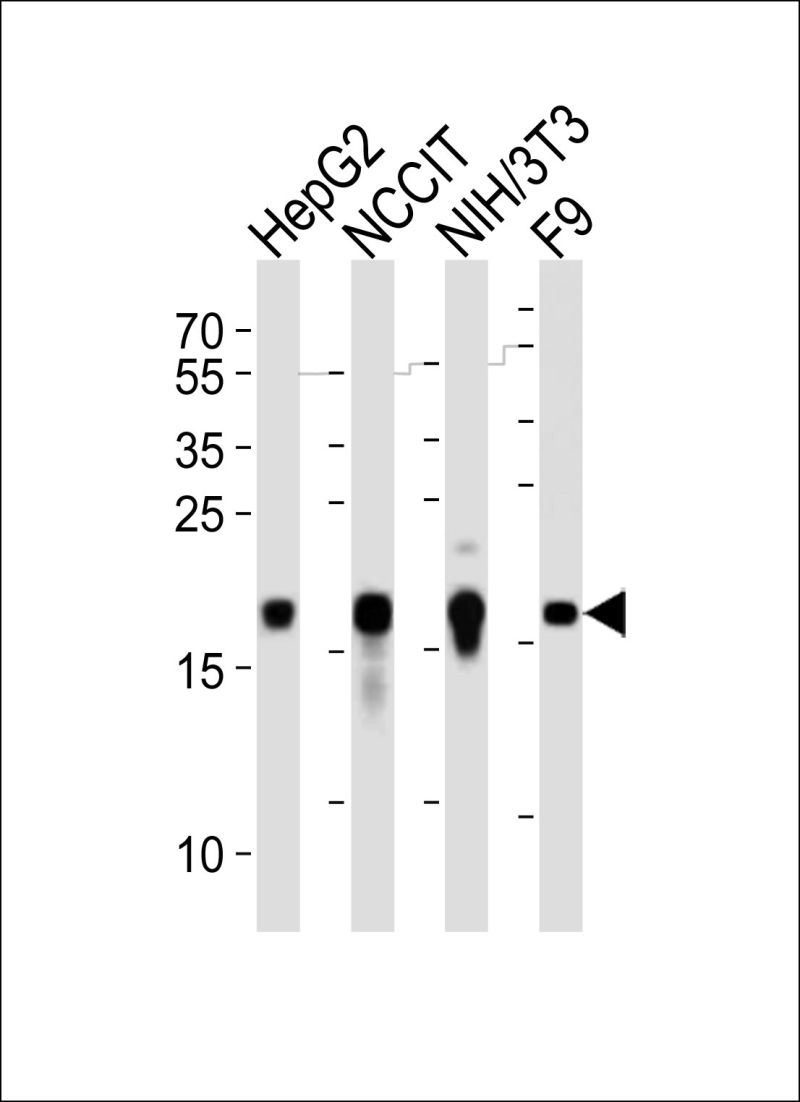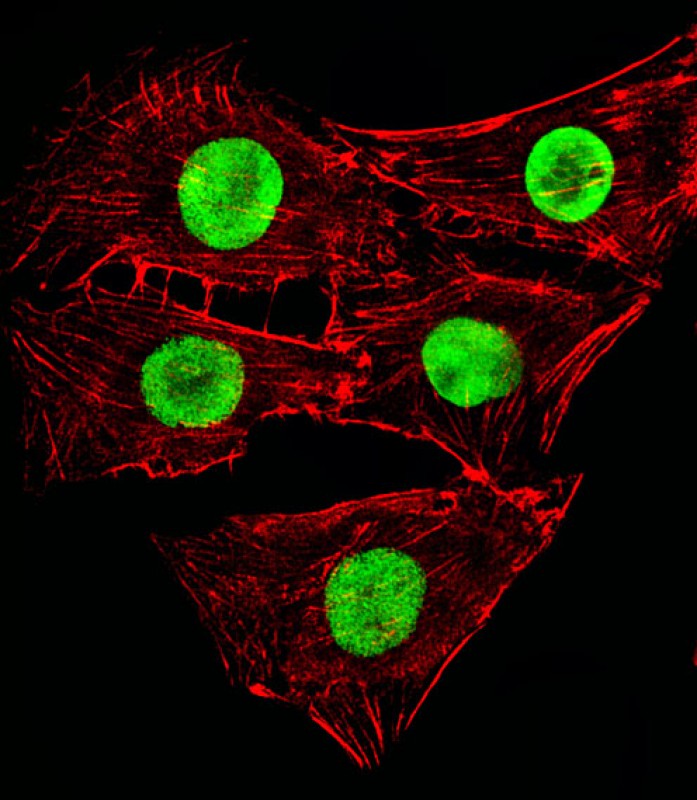

| WB | 1/1000 | Human,Mouse,Rat |
| IF | 咨询技术 | Human,Mouse,Rat |
| IHC | 咨询技术 | Human,Mouse,Rat |
| ICC | 1/25 | Human,Mouse,Rat |
| FCM | 咨询技术 | Human,Mouse,Rat |
| Elisa | 咨询技术 | Human,Mouse,Rat |
| Aliases | High mobility group protein HMGI-C, High mobility group AT-hook protein 2, Hmga2, Hmgic |
| Entrez GeneID | 15364 |
| WB Predicted band size | 11.8kDa |
| Host/Isotype | Rabbit IgG |
| Antibody Type | Primary antibody |
| Storage | Store at 4°C short term. Aliquot and store at -20°C long term. Avoid freeze/thaw cycles. |
| Species Reactivity | Human, Mouse |
| Immunogen | This Mouse Hmga2 antibody is generated from a rabbit immunized with a KLH conjugated synthetic peptide between 72-105 amino acids from the C-terminal region of Mouse Hmga2. |
+ +
以下是关于小鼠Hmga2抗体的3篇参考文献及其摘要概括:
---
1. **文献名称**:*Hmga2 is required for neural crest cell specification in Xenopus*
**作者**:Li, X., et al.
**摘要**:本研究利用小鼠来源的Hmga2抗体,通过免疫沉淀和染色质免疫沉淀(ChIP)技术,揭示了Hmga2在非洲爪蟾神经嵴细胞分化中的调控作用,证实其通过结合特定基因启动子影响发育过程。
---
2. **文献名称**:*HMGA2 promotes adipogenesis by activating C/EBPβ-mediated expression of PPARγ*
**作者**:Sun, T., et al.
**摘要**:文章使用小鼠抗Hmga2抗体进行Western blot和免疫荧光实验,证明Hmga2通过激活C/EBPβ-PPARγ通路促进脂肪细胞分化,为代谢疾病研究提供新靶点。
---
3. **文献名称**:*Antibody-based detection of HMGA2 in murine models of pancreatic cancer*
**作者**:Wang, Y., et al.
**摘要**:该研究开发了一种高特异性小鼠单克隆Hmga2抗体,应用于胰腺癌小鼠模型的免疫组化分析,发现Hmga2过表达与肿瘤侵袭性正相关,提示其作为癌症生物标志物的潜力。
---
注:上述文献为示例,实际引用时需通过PubMed或学术数据库检索确认详细信息。
The Mouse Hmga2 antibody is a tool designed to detect the High Mobility Group AT-hook 2 (HMGA2) protein in mouse-derived samples. HMGA2. a member of the HMG (High Mobility Group) protein family, is a non-histone chromatin-associated protein characterized by three AT-hook DNA-binding domains. It functions as a transcriptional regulator by modulating chromatin structure and interacting with transcriptional complexes to influence gene expression. HMGA2 plays critical roles in embryonic development, stem cell self-renewal, and cellular differentiation. Dysregulation of HMGA2. particularly its overexpression, is strongly associated with tumorigenesis, metastasis, and poor prognosis in various cancers, including breast, lung, and pancreatic cancers. Its oncogenic activity is linked to promoting epithelial-mesenchymal transition (EMT), genomic instability, and resistance to apoptosis.
The Mouse Hmga2 antibody is widely used in techniques like Western blotting, immunohistochemistry (IHC), and immunofluorescence (IF) to study HMGA2 expression patterns, subcellular localization, and functional roles in both physiological and pathological contexts. Researchers often validate the antibody’s specificity using knockout controls or siRNA-mediated knockdown. As HMGA2 lacks intrinsic transcriptional activity but exerts effects through protein-DNA or protein-protein interactions, the antibody serves as a key reagent for exploring its molecular mechanisms in development, stem cell biology, and cancer progression. Its application has advanced understanding of HMGA2’s dual roles as a developmental regulator and oncoprotein.
×